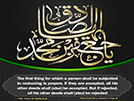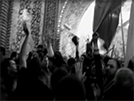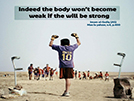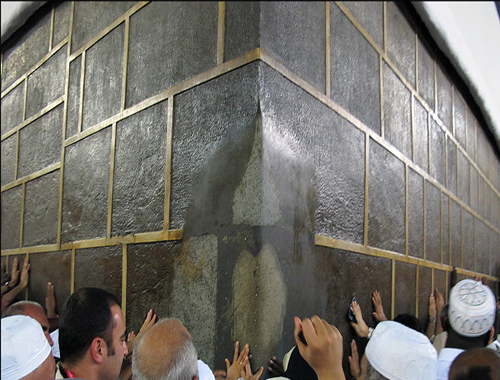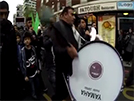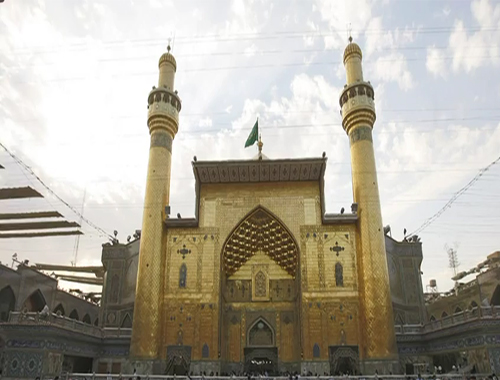Wealth
- Details
- Hits: 3681
Wealth
From economic point of view wealth is not abundant, easily obtainable or unlimited in quantity. It can be used personally and is transferable to others. Wealth in society is like blood in human body. As blood should be in circulation in the body so that all organs in proportion to their need and position may use it to their advantage, similarly wealth also should remain in circulation among all the strata of society so that its members may maintain their life and be vigorous and energetic. If blood is blocked in one organ so that it does not flow to other parts of the body in sufficient quantity thrombosis will cause serious trouble. It may upset the entire system or may even lead to death. Similarly if wealth is blocked in a particular class of society, many social ailments are likely to develop. As blood keeps all the organs alive and enables the whole body to function in a co‑ordinated manner, the same is the case with wealth in society. Without economic equilibrium members of the society cannot make co‑ordinated efforts, which are necessary to save the society from decay and ruin.
Islam has given consideration to wealth from different angles. It has been mentioned in more than 70 verses of the holy Qur'an.
In the Surah al‑Nisa, verse 5, wealth has been referred to as a means of support for man. The Qur'an says:
"Do not give away to the idiots your property which Allah has made for you a means o f your sustenance".
In the Surah al‑Baqarah, verse 180, the Surah Saad, verse 32 and the Surah al‑Adiyaat, verse 8 it has been described as Khayr, that is good and beneficial.
Has wealth been censured in the Qur'an?
Though in the Qur'an we find certain verses in which a reference has been made to wealth in a way that gives the impression that this Divine Book regards it as base and despicable, yet if we go a little deeper we can discover that what has been really censured is the excessive reliance on it or attaching too much importance to it and not its real worth. What is opposed in these verses is the love of wealth for the sake of wealth and its use for pomp and show:
"Nay, but you show no kindness to the orphan, nor do you urge the feeding of the needy. On the other hand you devour the inheritance o f the orphans greedily along with your own share and love wealth ardently" . (Sarah al‑Fajr, 89:17 ‑ 20).
"Wealth and children are an ornament of this worldly life. But the good deeds of lasting value are better in the sight of your Lord and hold for you a greater hope". (Sarah al‑Kahf, 18:46).
From Islamic point of view money can be used as a means of the welfare of life and satisfaction of human wants. It should be used for improving the general conditions of the people and guiding them to the path of Allah. But it is not to be used as a means of the display of splendour and vanity, nor is it to be hoarded. To make the amassing of wealth a goal of life causes only misery and not happiness.
The Qur'an says:
"Alas for every slanderer and back‑biter who amasses wealth and boards it! Does he thinks that his wealth will make him immortal? Certainly not. He will surely be thrown into the Consuming Furnace" . (Sarah al‑Humazah, 104:1 ‑4).
To amass wealth is a matter of vanity
"Obey not any mean swearer, defamer, going about with slander, hinderer of good, out stepping the limits, sinful, ignoable, besides all that, notoriously mischievous because be possesses wealth and sons. When our verses are recited to him, be says that they are but stories of those of your. We shall brand him on the snout (bring him to disgrace) ". (Surab al Qalam, 68:10 ‑ 15).
Power and riches should be used as a means of securing the high and noble objectives of life. That is the only proper use of them. Otherwise if they are used to compete with other people in the field of life, they become degrading, and at the most can give only a transient pleasure of this world.
The Qur'an says:
"Know that the life of this world is only a sport and pastime, pageantry and a cause o f boasting among you and a vying in the multiplication of wealth and children ". (Surah al Hadid, 57:20).
Such attachment to power and pelf makes one oblivious of Allah and those ever‑lasting values on which humanity of man depends. It makes him engrossed in the trivial matters of daily life ‑ a state not worthy of a purposeful and honest man.
"Believers, let not your wealth and children divert you from the remembrance of Allah. Those who do so shall surely be the losers". (Surah al Munafiqun, 63:9).
That is why the Qur'an has described money and wealth as Fitnah or an object of testing and trial. The 28th verse of the Surah al Anfal and the 15th.verse of the Surah al Taghabun introduce it as a means of testing man as to what he does with it and testing others as to how they react to the person who possesses it. If they hold him in respect simply because he is rich, then they have lost two thirds of their faith.
The holy Prophet has said:
"If a man shows humble behaviour toward a rich person because of his riches, two thirds of his faith is gone".
Property rights in the various economic systems of the olden days property rights were almost unlimited. On the basis of them an owner could utilize and dispose of his property as he liked and did not consider himself subject to any appreciable restriction.
In the capitalistic and semi‑capitalistic systems of modern times the basic question for which people work is that of unrestricted freedom to increase private income and to spend it in accordance with personal propensities. As to the question how this income is secured and how it is spent, it ,‑is regarded an uncalled‑for intervention in the personal freedom. Only in the cases where the interests of the capitalists clash, restrictions are imposed and regulations are formulated, but not with a view to safeguard the interests of the masses but with a view to regulate the division of wealth among the capitalists. In these systems the field of economic enterprise is open to only one class, viz. the capitalists. Only those persons belonging to other classes of society who render befitting services to the interests of the capitalists may be allowed to take advantage of this field to some extent. As for the masses the field of economic progress is more or less shut to them and they perforce have to follow the way planned for them invisibly by the capitalists under their overall policy.
In the present socialist systems the right of property has mostly been taken away from the individuals and transferred to the state. In these systems the economic injustice prevailing under the capitalistic system has been considerably reduced, but at the same time a part of the natural human incentive has also disappeared.


